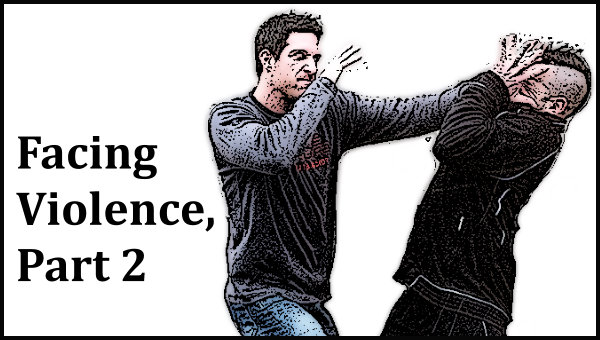By Tyson Thorne
December 8, 2015
| Tweet |
|

Last week I mentioned how dismayed I was (and am) about the shootings in Colorado Springs and San Bernardino, California. We looked at several Bible passages and learned about the sanctity of life. Murder, depraved negligence and accidental killings are all punishable by law. I mentioned then that there was a singular exception to the rule “Thou shalt not kill.”
There is one – and only one – scenario when bloodshed is a forgivable offense, and even then it is not without consequences: the protection of life. We see in Leviticus 24 and Romans 13 that capital punishment is intended to preserve life by ending the life of the murderer. This has a two-fold effect as it assures the murderer will not kill again and it teaches society that to take a life is to forfeit your own.
Also, it is permissible to use lethal force in the protection of your life or the lives of others. Nehemiah 4 probably deserves a deeper look than we will take today, but it is noteworthy that those who were rebuilding the wall around Jerusalem were armed and instructed to defend the work. These armed men were often the one’s doing the construction work, not military or law enforcement officers. And notice too that they were armed with the assault weapons of the day: swords, spears and arrows. But the passages that will hold the most relevance to believers today come from the New Testament. Examine the teachings of Christ.
On the night of his betrayal, Jesus and the disciples are praying in the garden when Roman soldiers arrive to arrest Jesus. In this moment Peter draws his sword to defend Jesus, but the Messiah cautions him and tells him to put his sword away. Jesus was waiving his right of self-defense for a higher good. But why did Peter think this an appropriate action in the first place?
During the confrontation with the Roman soldiers Jesus condemns them saying,
“Have you come out with swords and clubs like you would against an outlaw? Day after day when I was with you in the temple courts, you did not arrest me. But this is your hour, and that of the power of darkness!”
It’s easy to dismiss, but Jesus is stating he has the right to defend himself because of Exodus 22.2. Read it and see for yourself the parallels: “If a thief is caughtbreakingin and is struck so that he dies, there will be no bloodguilt for him . If the sun has risen on him, then there is bloodguilt for him.” Exodus teaches that if a thief breaks into your house at night, you may kill him and not be guilty of murder. Jesus’ words to the Romans are clear, “you have come at night with evil intentions and I have the right to defend myself.” If that isn’t clear enough, Jesus tells Peter point blank that he could justly defend himself by praying and having an army of angels deal with the Romans:
Then Jesus said to him, “Put your sword back in its place! For all who take hold of the sword will die by the sword. Or do you think that I cannot call on my Father, and that he would send me more than twelve legions of angels right now? How then would the scriptures that say it must happen this way be fulfilled?” (Matthew 26.52-54)
Clearly Jesus had the right to defend himself, but there is still more to this story. Shortly before going to the garden that night Jesus had some interesting words for the disciples. Luke 22 records this exchange:
Then Jesus said to them, “When I sent you out with no money bag, or traveler’s bag, or sandals, you didn’t lack anything, did you?” They replied, “Nothing.” He said to them, “But now, the one who has a money bag must take it, and likewise a traveler’s bag too. And the one who has no sword must sell his cloak and buy one. For I tell you that this scripture must be fulfilled in me, ‘And he was counted with the transgressors.’ For what is written about me is being fulfilled.” So they said, “Look, Lord, here are two swords.” Then he told them, “It is enough.”
During their time together God provided for them in every way, including their safety. Jesus told them that was about to change, and that a time was coming when a weapon would be of greater value than clothing. Is it any wonder Peter responded the way he did?
There is a lot more that could be said on the topic, and many more observations about the text could be made. Perhaps we’ll delve into this more at another date, but for now I only want to address a single issue: the right of self-defense. Tomorrow we will examine just how and when this is an appropriate response to violence.
|
|
